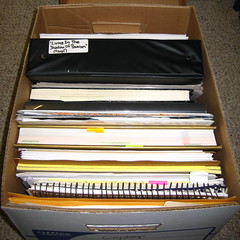In an earlier post, How to Write a Good Business Letter, I emphasized the importance of writing in a
conversational style. Here in addition to emphasizing that the business letter be
as specific as possible -- typed and both free of spelling errors and
incorrect grammar, I will expand on the three essential points.
- A good business letter should be kept to one page. You can take it for granted that the person you writing haven’t the time nor the interest in wading through a long letter. Therefore, pare your letter down to the essentials by eliminating every sentence that will not help the letter’s recipient to help you.
- The average length of a sentence should be 15 to 20 words and a paragraph about six to ten lines. Definitely do not let your paragraph be more than 10 lines. Frequent paragraphing breaks up the solid looks of the letter and gives the reader courage to go on. Moreover, keep you words short. Don’t try to impress the reader with long or unusual words or phrases. You may not be using them correctly in the first place. In the second place, the reader will tend to be put off by them.
- The letter should be simple, warm and as brief as possible. Clearly state the subject in the first paragraph in a matter-of-fact way and then find a way of emphasizing the positive. Tell why you are writing, give the important facts, and describe what you want the recipient to do. Telling the recipient why you are writing immediately lets him know what’s on your mind. It gives him a framework in which to read your letter and a signpost telling him where he’s to focus his attention.
Giving the important facts to support your first sentence
will show that you are businesslike and thoughtful. Limit the facts to the one,
two, or three that are most important. I suggest put each of your reasons or arguments
in a separate paragraph, preceded by a number.
Finally, describing what you want the reader to do gives him
something to act upon. You will confuse the reader if you don’t tell him specifically
what actions you want him to take.
To repeat these guidelines, ask yourself these questions:
Why am I writing?
What facts support
the reasons why I am writing?
What do I want the reader
to do?
Write all your letters in everyday conversational language
much as you would speak. Make your letters interesting and a reflection of your
personality. This shows you off as a clear thinker instead of a blowhard.
Apply the
conversational test to your all your business letters. Ask yourself, “ If
I was speaking to this person instead of writing to him what would I say and
how would I say it.”
Check each completed letter to see if its wording really does match what you would say in person. Follow these guidelines, and you will increase the power and effectiveness of your letters.
I'd like to read your comments. Leave them below.






No comments:
Post a Comment